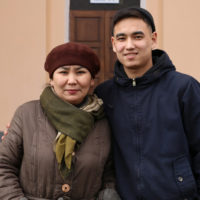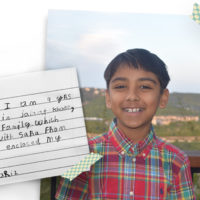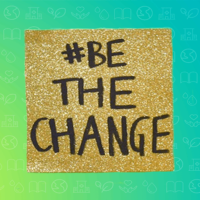Najma Shah, a Maryland resident, was a U.S. educator for two decades before moving to Dar es Salaam, Tanzania as Early Years Coordinator at the Aga Khan Nursery School, part of the Aga Khan Education Service.
Meet Najma
I have always been passionate about children in their early years. I worked in education in the United States for 20 years, and then wanted to see how children were being educated around the world. I previously studied at the Sultan Mohamed Shah Aga Khan School in Karimabad, in Karachi, Pakistan and taught there for six years before moving to Maryland. So when an opportunity arose to work at another Aga Khan school, I was excited to contribute what I learned in the U.S. Since moving to Tanzania last year, I realize I still have much to learn.
My current job is Early Years Coordinator at the Aga Khan Education Service in Dar es Salaam, the capital of Tanzania. At the Aga Khan Nursery School there are 236 students aged 2-6 years old. I work with 9 teachers, 9 assistants, and 14 support staff at this school.
Every Day is a New Day
My morning starts with a 10-minute walk to the nursery school. There are a lot of puddles, but it’s a nice walk because I pass lush greenery and see monkeys up in the trees. I know when I’m approaching the school grounds because there are peacocks dancing in the lawn, surrounded by peahens. I greet the askaris (gatekeepers) by saying habari za asubuhi (good morning). By 7:15, I stand at the school entrance to greet the children as their parents or drivers drop them off in the carpool lane.
Once the school bell rings, I check each bathroom to make sure the water is running and we have enough soap. Then I make sure each classroom has enough clean drinking water. After that, I walk through the campus grounds and check to see that everything is in order. Then I go to the classrooms.
My current role requires that I oversee the staff and curriculum, yet I can’t help but miss my teaching days. Most of the time, I observe the teachers, but sometimes I teach lessons and let the teachers observe me. Recently I did a group storytelling lesson where the children did a role play of the Three Billy Goats Gruff.
All the children leave by noon. That’s when I sit with groups of teachers to go over their weekly plans. I also give them feedback based on my classroom observations and work with them to meet their needs. I provide professional development opportunities, like online training courses, for individual teachers who have shared their goals with me.
Satisfactions, Including a Day of Peace
A big satisfaction was the celebration of International Peace Day. Schools around the world celebrate that day during September, and I celebrated it in U.S. schools as well. When I arrived last September, I thought about how His Highness the Aga Khan always talks about diversity and peace in his speeches. It inspired me to incorporate this holiday into the curriculum.
Each of the nine classes in the nursery school did different projects that demonstrated what the students thought about peace. For some, peace meant being nice and sharing. For others, it meant no hitting. The excitement culminated in a peace walk held at the end of the month. The peace walk took place on school grounds with parents, teachers, and students. At the end of the walk, we had a candle-lighting ceremony where parents came forward and said “peace” in different languages. The students sang the song “Light a Candle for Peace.”
Since the school is an International Baccalaureate school, open-mindedness and diversity are part of the mission, so this event tied in really well. The teachers had a lot of fun with the activities and the parents were happy to showcase their diversity. The parents’ involvement made them feel welcome, and in return they welcomed me to the community. Since that event, parents and teachers have approached me with more ideas on how to celebrate diversity, such as recognizing world holidays like Chinese New Year. I feel good about parents taking an active role in their children’s learning.
The Challenges
I get frustrated about things that are not in my control, like heavy rains that cause flooding and leaky roofs. Sometimes the school loses power, so we have to send the children home early, which takes away from quality time in the classroom.
It can be challenging to get classroom resources. I can’t order things online and have them delivered to my doorstep. Instead, when the school needs something I have to go through friends of friends, and it can take up to five weeks.
Surprises of Life in Tanzania
People back in America might be surprised to see all the open space and greenery, with peacocks and monkeys roaming. Sometimes when we have school events, we have to be careful because the animals like to join in the festivities. They take some of the children’s food for themselves! You don’t see that in the U.S.
Building on Local Strengths
I find the school’s local staff is very friendly, positive, and flexible. They are extremely welcoming. They accept suggestions and are eager to learn. They are genuinely interested in personal and professional development. That’s their great strength. There is a lot of knowledge sharing. They have taught me about their culture and how to speak Swahili so that I can better adjust to my job and life in Tanzania. This experience has been tremendously valuable for me, and I hope for the school’s children as well.
This post is part of the #humansoftheworld series on our blog—a collection of tales we can both relate to and marvel at. Here, we share stories of appreciation, self-reliance, and strength from across the Aga Khan Development Network.


